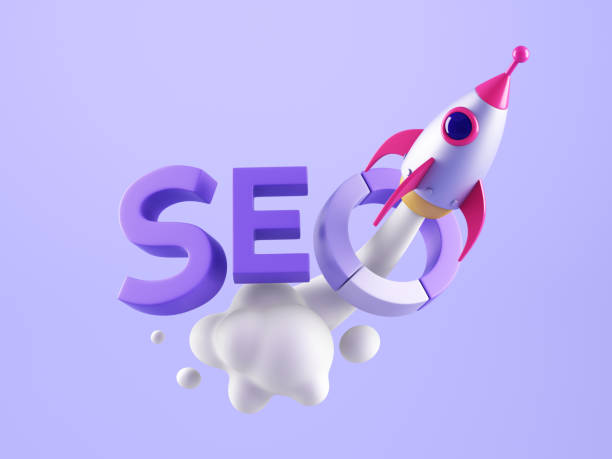Speed is a crucial performance factor for your business, and if your website loads slowly, all the potential visitors might abandon it in a few seconds. This will affect your conversion rate to a considerable extent. It is a bitter truth that many web pages do not load as they should, which can negatively impact your rankings and revenue.
Does page speed affect SEO?
Page speed affects SEO, and your website’s speed influences how it will rank on the search engine. Page Speed can also impact your website’s bounce rate and session time. This also affects SEO.
Page speed is a website metric that measures how long a page takes to load, and unlike site speed, which is related to the average loading time of the website, page speed refers to a specific page of the website. Server quality, image compression, file sizes, and many other factors determine it.
How to monitor your website’s speed?
You can check the website’s speed using a free speed test on the search engine’s Pagespeed insights. This lets you know what could be affecting your site SEO speed. To check your website’s performance, Google’s speed score uses the data from the Chrome User Experience report.
How vital is page speed for SEO?
According to the search engine, page loading has become a direct ranking factor for mobile searches, and it will become a ranking factor for all the pages when Google rolls out its Core Web vitals update. SEO Page speed matters a lot and significantly impacts the user experience. All the fast-loading pages make it easier for visitors to navigate your website. Optimizing your website for mobile devices is very crucial. Here are some other reasons why increasing your page load time is essential-
- Reduces the bounce rate.
- Increases page views.
- Increases the dwell time.
- Improves conversion rate.
How can you speed up your website?
1. Activate browser caching
We all are no strangers to the fact that fetching resources to load your website could negatively affect the site speed SEO as it takes time to load several page elements for all the new visitors. Browser caching lets the browser temporarily store the information, including the style sheets and images.
Browser caching can speed up the webpage’s loading time, and one can use free plugins, which help reduce the total number of file requests to the server and result in faster page load times.
2. Minify resources
Using too many CSS files can result in numerous HTTP requests, which could negatively affect your site speed. It is very important to minify the CSS files, and this removes all the unnecessary characters, comments and spacing in your content.
3. Enable image compression
All the large image file sizes can negatively affect the site speed. You can make use of several tools for image compression and reduce the time it takes to download your HTML, CSS and all the Javascript files.
Many individuals avail of the services of SEO Melbourne which is a digital marketing SEO that provides different types of SEO services to the clients.
Difference between page speed and Site speed
Many people use the term page speed while others use the term site speed. These two terms are very much similar but not the same. Page speed refers to the performance of a single web page while the site speed is the one which refers to the overall performance of the whole website.
How important is page speed for SEO?
A fast site means your web pages load quickly and people come to your website for your content.
Fast loading sites have higher conversion rates
The attention span of a human is short and as the internet gets faster, these attention spans are getting shorter. Many studies have found a crystal clear link between the amount of time a webpage takes to load and the total percentage of visitors who will get bored of waiting.
Your major aim should be to be the fastest site in your niche. You should be faster than your competitors and having an ecommerce platform that takes forever to load will not do any good. By offering a fast site, you also encourage your visitors to stay longer and this helps improve your conversion rate and also build trust and brand loyalty.
A faster page improves the user experience
The search engine understands that the time it takes for a webpage to load is vital to the users overall. Many researches shows that the level of stress from waiting for the slow mobile results can be very stressful. Hence, a faster page improves the user experience.
Improving your site speed means making people happy and Google will see your website as a great search.
Google needs fast sites
Slow websites are often slow as they are inefficient and they may load too many large files and they do not make use of modern technologies for serving their webpage. This means that the search engine has to consume more bandwidth and allocate more resources. Across the web, every millisecond they can save adds up. A faster web is way better for users, and it reduces the operating costs of the search engine.
Improve your page speed to improve crawling for search engines
The bigger your website is, the more impact page speed optimization will have and it can impact user experience and conversion rates. However, it can also affect the crawl rate.
Optimizing your site and content for speed will provide a good user experience for all your visitors and it helps Google Bots better crawl your website.
Page speed is a ranking factor
Google has said that a fast site helps you rank better and hence it is no surprise that it has been measuring the speed of your website. Google wants to serve the searchers the most relevant information even if the page experience lacks. Creating high-quality content is the best way to rank, and the search engine also states that the page experience signals become more important when many webpages with relevant content for visibility in the search result.

